Thanks to favourable conditions, steady price growth and relatively affordable mortgage rates, the Dubai real estate market continues to attract investors from around the world. Non-residents of the UAE can take out a mortgage on property in Dubai, opening up prospects for personal residence, capital preservation, and rental income.
So, can non-residents take out a mortgage in Dubai?
Yes, banks in the UAE provide mortgage loans to foreign citizens looking to purchase property in the emirate. This is particularly relevant for investors considering buying a holiday home or an apartment by the sea in Dubai, or for those looking for a long-term investment opportunity.
However, it is worth noting that the conditions for non-residents are more restrictive than those for UAE citizens and expatriates. The amount financed, income requirements and down payment depend on the specific bank and the selected project.
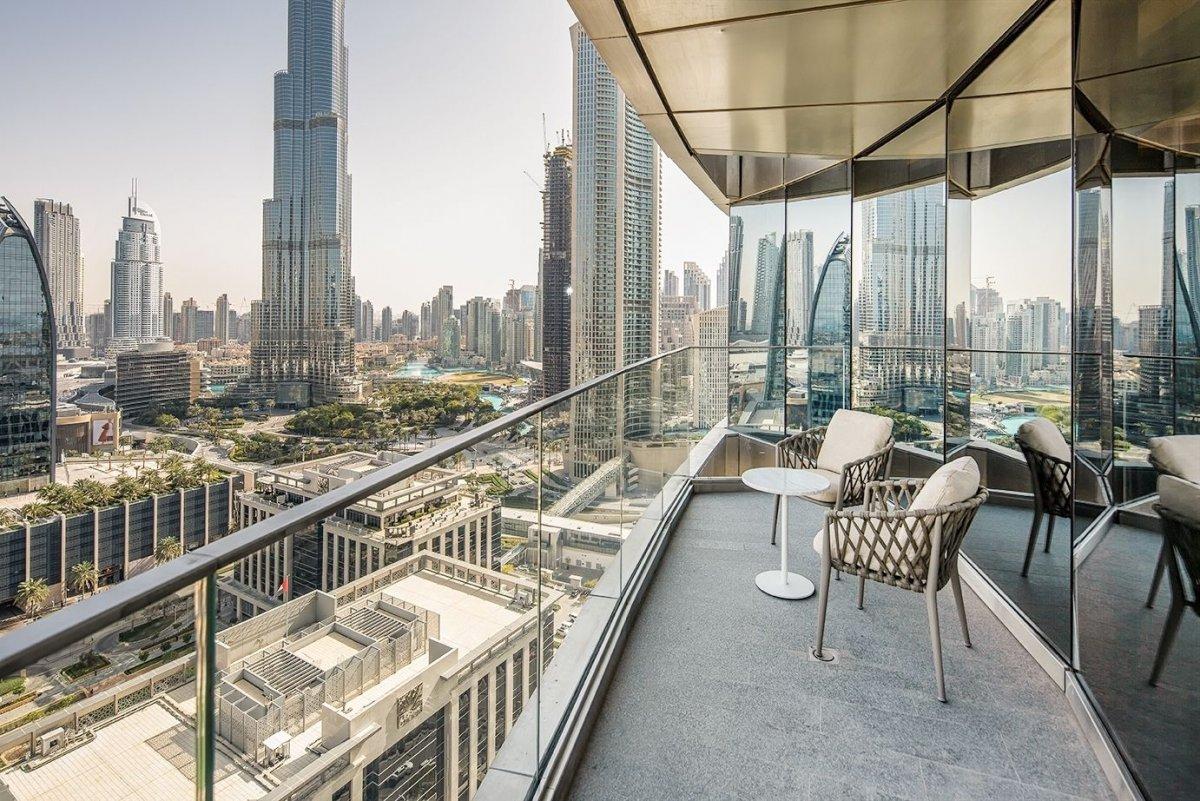
Requirements and conditions for non-residents
To be eligible for a mortgage in Dubai, a foreign buyer must meet a number of criteria. These include:
- Proof of official income, such as employment with a company registered in the UAE or starting your own business in the country.
- Proof of financial stability, in the form of bank statements for the last 12 months, demonstrating the origin and regularity of the funds.
- For business owners, a mandatory company audit is required.
- A down payment of 50% of the property value is required for buyers without residency status. Residence permit holders only need to pay a minimum of 20%.
- Age restrictions: you can apply for a mortgage from the age of 21 and the repayment period must end before retirement (usually before the age of 65).
- A financial reserve for living expenses is required, whereby after monthly mortgage payments, the family must have at least 25,000 dirhams remaining.
These conditions help banks minimise risk and confirm the borrower's solvency. Thanks to this, the process of obtaining a mortgage in Dubai and the other emirates is transparent and safe for both foreigners and residents.
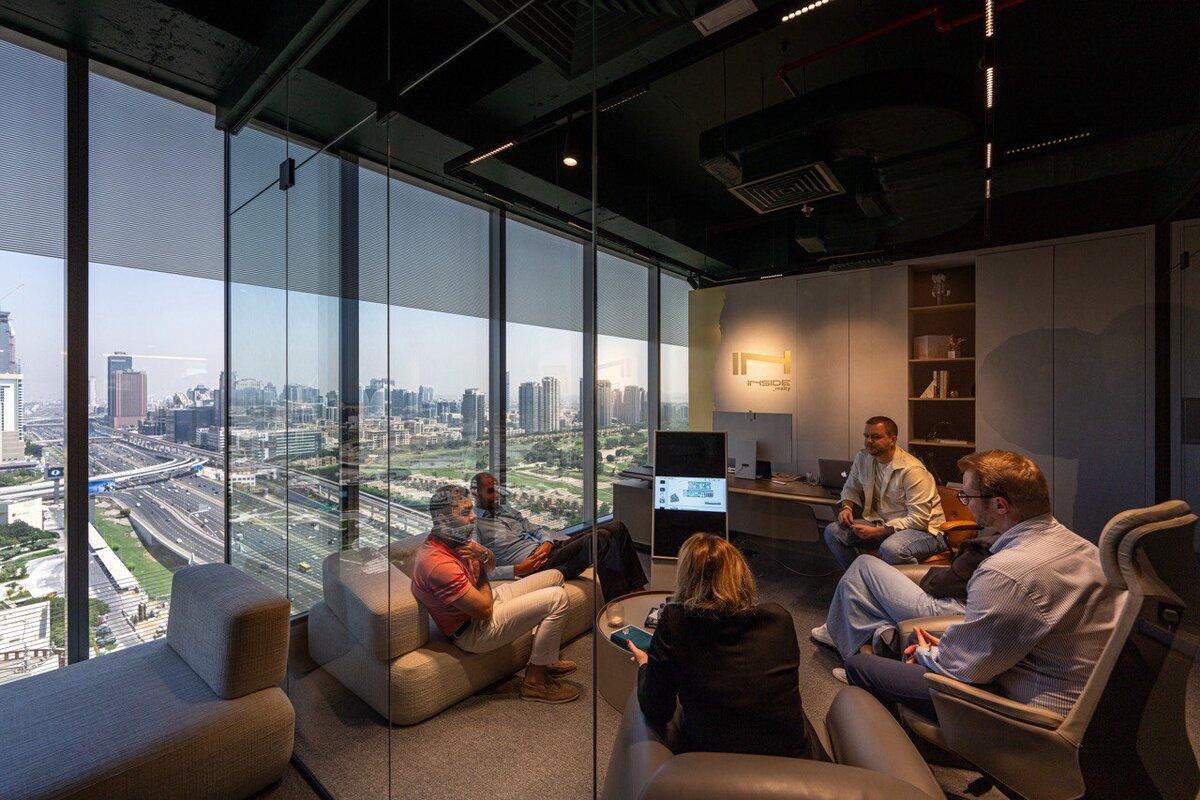
What documents are needed to apply for a mortgage?
To apply for a mortgage in the UAE, banks request a standard set of documents to confirm the borrower's identity and financial solvency. Usually, the following is required:
- An application for a mortgage loan from the bank.
- Identity documents, such as a passport and a copy of the residence visa, if you have one.
- A family composition certificate confirming dependants.
- For employees, an employment contract or a letter from the employer stating the position and salary is required.
- Bank statements for the last six months showing regular income.
- A tax return confirming the transparency of the sources of funds.
- Credit history: upon request, the bank will assess the borrower's overall financial situation. Other loans are acceptable, but once repaid, the applicant must have sufficient funds to live on and support their family.
Having all the necessary documents ready increases the chances of a mortgage loan being approved quickly in Dubai and helps the bank assess the client's solvency. Additionally, banks only approve mortgages for properties from reliable developers and for projects that are included on their financed projects list. Therefore, before purchasing a property, it is important to clarify whether it meets the conditions of a particular bank.

Features of lending and interest rates
Mortgage terms for non-residents in Dubai vary depending on the bank. For example, Mashreq Bank provides financing of up to AED 10 million, whereas Abu Dhabi Commercial Bank (ADCB) provides financing of up to AED 24 million. The loan term can be up to 25 years, but in practice it is often shorter for non-residents.
Interest rates also vary; typically, they are slightly higher for foreign buyers than for residents, but remain competitive compared to other global markets. Currently, average mortgage rates in the UAE range from 3.9% to 5.5% per annum, depending on the loan terms and programme selected. The maximum loan term is 25 years. The minimum is usually three years.
Before taking out a mortgage in Dubai or other emirates, it is important to consider a number of details that may not be obvious to foreign property buyers.
- Form of ownership. Foreigners are only permitted to purchase property in freehold areas. Most of these areas are located in Dubai, where buyers obtain full ownership of the property.
- Property under construction: Mortgages for properties under construction are only possible if completion of the house is scheduled no later than two years after the loan is taken out.
- Mandatory insurance. When applying for a mortgage, banks require the following:
- Life and disability insurance (approximately 0.5–1% of the loan amount);
- Title insurance (up to 0.05% of the property value) protects both the buyer and the bank against any claims to ownership of the property.
- Bank commission: They charge a commission of around 1% of the property price for reviewing and approving a mortgage application. This amount is paid in advance, but refunded to the customer if the loan is denied.
- Interest rates and terms: It is important to carefully review all offers from banks, as repayment terms and interest rates may vary. Sometimes, mortgages for foreigners in Dubai are less advantageous due to increased requirements and additional costs.
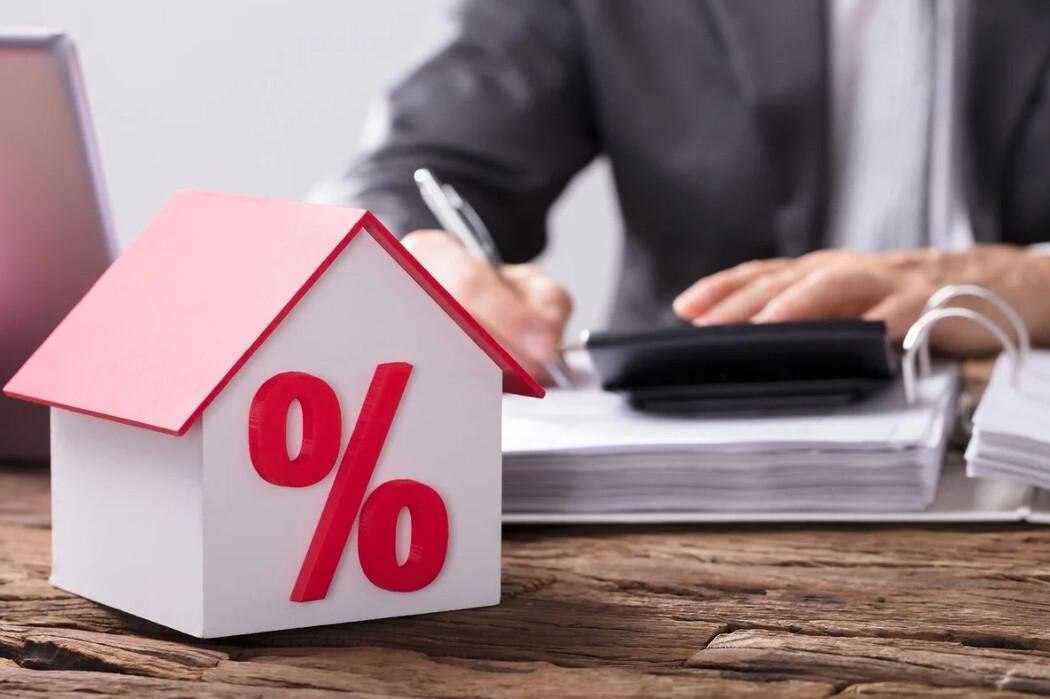
Which banks offer mortgages to non-residents?
In Dubai and other emirates, mortgage loans for foreign property buyers are provided by local and international banks alike. Market leaders include Emirates NBD, Abu Dhabi Commercial Bank (ADCB), First Abu Dhabi Bank (FAB) and Dubai Islamic Bank. These banks have special programmes for non-residents, including fixed and floating interest rates, flexible repayment terms, and the option of early repayment. Each bank has its own rules regarding minimum income, borrower age, and the types of real estate that can be purchased with a loan.
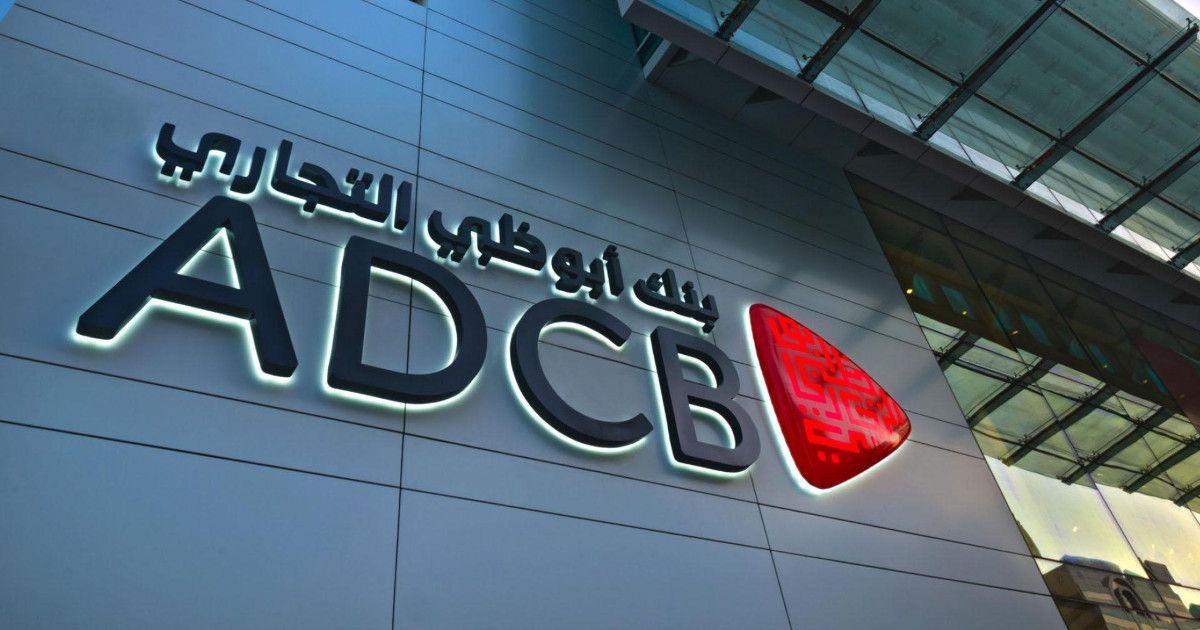
Step-by-step mortgage application process:
If you are a foreigner looking to obtain a mortgage loan in Dubai, the steps you need to take are as follows:
- Assess your budget and prepare your documents. First, calculate how much you can afford to pay as a down payment and what monthly payments you can afford. Banks usually calculate the LTV (loan-to-value) ratio and check the stability of your income. For this, you will need your passport, a copy of your visa (if applicable), recent bank statements, proof of income (such as an employment contract or tax returns) and, if you are a business owner, accounting/auditing reports. These requirements are described in detail in the mortgage programmes of major UAE banks.
- Compare banks and decide whether to apply directly or through a broker, then obtain preliminary approval (AIP). Get 2–4 offers from different banks, or hire a mortgage broker to make it easier to compare rates, fees and LTV limits. Request pre-approval or an agreement in principle. Based on your documents, the bank will inform you of the amount they are willing to lend and the terms — this information is important when negotiating with the seller.
- Find a property and pay a reservation deposit. Once you have received the AIP, you can choose an apartment or villa, agree on the price and sign a reservation or preliminary agreement (SPA) with a deposit payment (usually 5–10%, or as agreed). This reservation period gives you time to complete the banking procedures and legal review.
- Submit a complete set of documents and arrange a bank valuation. At this stage, submit the full set of documents to the bank (signed SPA, income documents, bank statements, passport/visa, etc.). The bank will appoint an independent property valuer — the valuation affects the final LTV and loan amount.
- Legal review and final approval. Together with your lawyer or trusted representative, the bank verifies the seller's ownership, the absence of encumbrances and that the property complies with regulations (including freehold areas). After that, the bank will issue final approval and prepare the mortgage documents.
- Sign the mortgage agreement and register with the DLD, completing the transaction. At this stage, you will sign the mortgage agreement at the trustee office, pay the remaining deposit and fees, and transfer the payment to the seller. The bank will then transfer the loan funds. The mortgage is then registered with the Dubai Land Department (DLD). Please note that mortgage registration is a formality requiring certain documents from both the bank and the owner.
- Take into account mandatory fees and insurance. When planning your budget, consider fixed and variable costs, such as bank processing fees (usually around 0.5–1% or a fixed fee), government fees (e.g. the DLD transfer fee and mortgage registration fee, which is 0.25% of the loan amount plus administrative fees), the cost of an appraisal and a title deed, and possible notary and trustee fees. Banks also require insurance (e.g. life/mortgage protection). All these items affect the total cost of obtaining a mortgage.
- Once the mortgage has been completed, you will receive the title deed. After registration, you will receive the title deed (proof of ownership). It is important to keep all documents, pay your mortgage payments on time and check the repayment schedule, as bank terms (early repayment options and penalties) can vary greatly. Therefore, it is crucial to compare them when choosing a lender.

Current trends in 2025
Interest in mortgages for non-residents has grown significantly in 2025. According to Knight Frank, more than 40% of housing transactions in Dubai are made by foreigners, half of whom use mortgage programmes. This popularity can be attributed to stable growth in real estate prices (an average annual increase of around 15%), high rental yields (an average of 6–8% per annum) and government initiatives such as the 'golden' visa for investors.
Dubai remains one of the most attractive cities for real estate investment, thanks to its combination of high living standards, political stability and global status as a business centre.
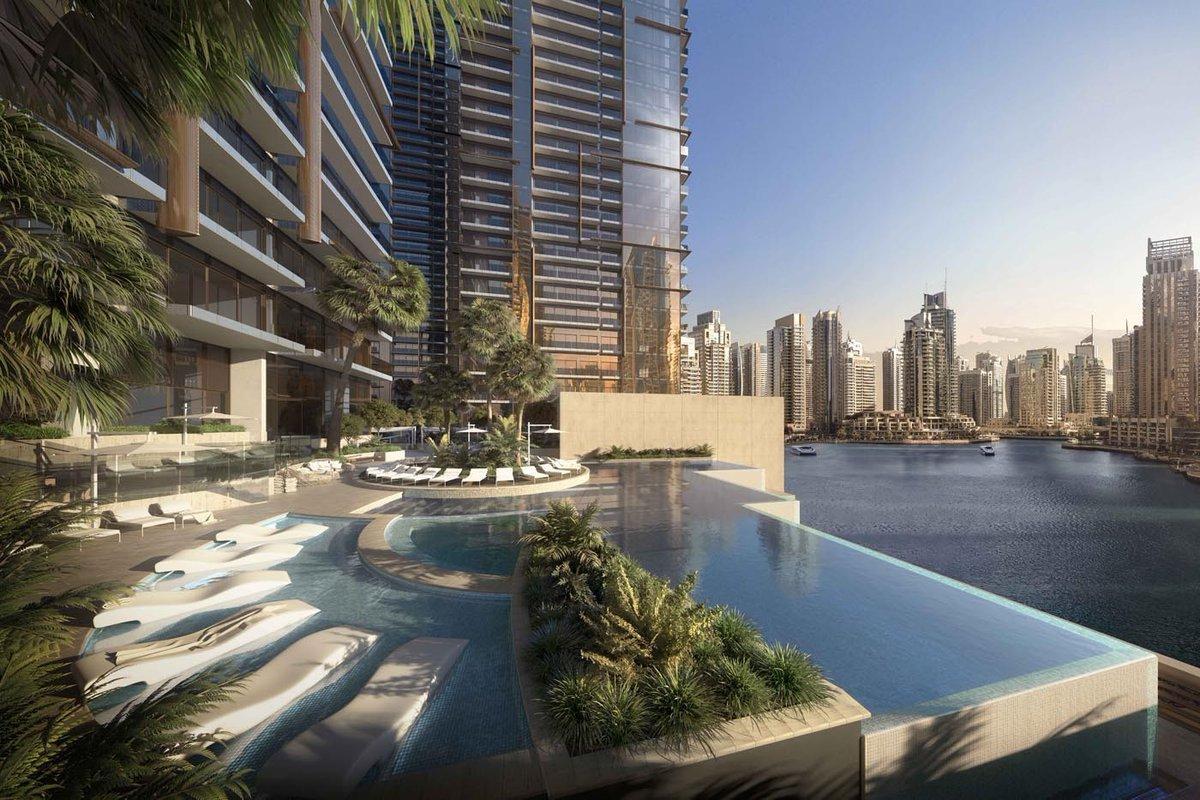
Mortgages in Dubai for non-residents provide a genuine opportunity to access the UAE real estate market, offering the chance to purchase prestigious properties, preserve capital and generate a stable rental income. Although the requirements are stricter than for residents, banks offer flexible programmes that enable foreigners to invest in one of the world's most rapidly developing markets.

